Filter by

Hidden histories of the dead : disputed bodies in modern British medical rese…
In this discipline-redefining book, Elizabeth T. Hurren maps the post-mortem journeys of bodies, body-parts, organs, and brains, inside the secretive culture of modern British medical research after WWII as the bodies of the deceased were harvested as bio-commons. Often the human stories behind these bodies were dissected, discarded, or destroyed in death. Hidden Histories of the Dead recovers …
- Edition
- -
- ISBN/ISSN
- 9781108633154
- Collation
- xvii, 322 p. ; ill
- Series Title
- -
- Call Number
- 174.20941 HUR h
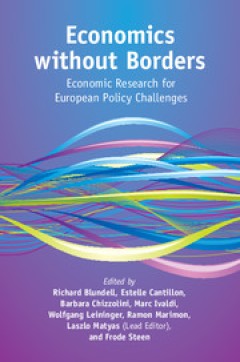
Economics without borders : economic research for European policy challenges
If treated as a single economy, the European Union is the largest in the world, with an estimated GDP of over 14 trillion euros. Despite its size, European economic policy has often lagged behind the rest of the world in its ability to generate growth and innovation. Much of the European economic research itself often trails behind that of the USA, which sets much of the agenda in mainstream ec…
- Edition
- -
- ISBN/ISSN
- 9781316636398
- Collation
- xxvi, 666 p. ; ill
- Series Title
- -
- Call Number
- 330.94 BLU e
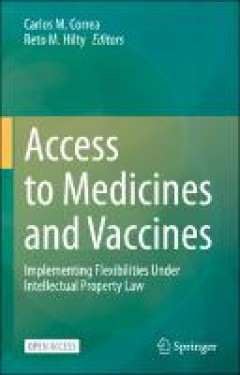
Access to medicines and vaccines : implementing flexibilities under intellect…
This open access book is the outcome of a Global Forum on Innovation, Intellectual Property and Access to Medicines held in December 2019 at the Max Plank Instititute in Munich, organised by the South Centre and the Max Plank Institute. The academics and experts from international organisations participating have contributed chapters to this book. The book is for policy makers (in Ministries of…
- Edition
- -
- ISBN/ISSN
- 9783030831141
- Collation
- x, 369 p. : ill.
- Series Title
- -
- Call Number
- 346.0486 COR a
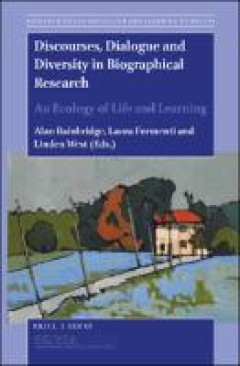
Discourses, dialogue and diversity in biographical research : an ecology of l…
This book explores how narratives are deeply embodied, engaging heart, soul, as well as mind, through varying adult learner perspectives. Biographical research is not an isolated, individual, solipsistic endeavor but shaped by larger ecological interactions – in families, schools, universities, communities, societies, and networks – that can create or destroy hope. Telling or listening to l…
- Edition
- -
- ISBN/ISSN
- 9789004465916
- Collation
- x, 226 p
- Series Title
- -
- Call Number
- 920.0072 BAI d

Vulnerable : the law, policy and ethics of COVID-19
Vulnerable examines the vulnerabilities and interconnections brought to light by the pandemic, as well as the legal, ethical and public policy responses. This book exposes the vulnerabilities of individuals, institutions, governance and legal structures, in several countries and worldwide.
- Edition
- -
- ISBN/ISSN
- 9780776636429
- Collation
- xiii, 630 p. : ill
- Series Title
- -
- Call Number
- 362.1962414 FLO a
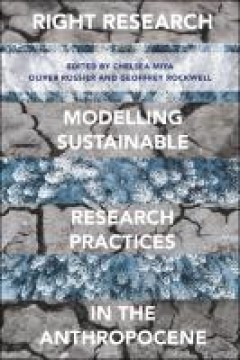
Right research : modelling sustainable research practices in the anthropocene
Educational institutions play an instrumental role in social and political change, and are responsible for the environmental and social ethics of their institutional practices. The essays in this volume critically examine scholarly research practices in the age of the Anthropocene, and ask what accountability educators and researchers have in ‘righting’ their relationship to the environment…
- Edition
- -
- ISBN/ISSN
- 9781783749638
- Collation
- xxiii, 560 p. ; ill
- Series Title
- -
- Call Number
- 304.2 MIY r
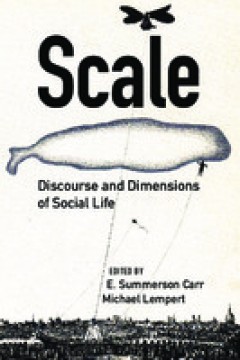
Scale : discourse and dimensions of social life
"Wherever we turn, we see diverse things scaled for us, from cities to economies, from history to love. We know scale by many names and through many familiar antinomies: local and global, micro and macro events. Even the most critical among us often proceed with our analysis as if such scales were the ready-made platforms of social life, rather than asking how, why, and to what effect are scala…
- Edition
- 15
- ISBN/ISSN
- 9780520965430
- Collation
- xi, 277 p. : ill.
- Series Title
- -
- Call Number
- 300.72 LEM s
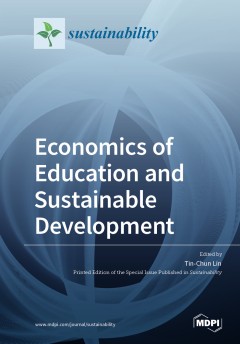
Economics of education and sustainable development
This book consists of articles that investigate and discuss the relationship between economics of education and sustainable development; that is, how education economics plays an important role in sustainable development. Economics of education or education economics is the study of economic issues relating to education (such as education policy and finance, human capital production and acquisi…
- Edition
- -
- ISBN/ISSN
- 9783036517179
- Collation
- 267 p. : ill.
- Series Title
- -
- Call Number
- 338.5 LIN e
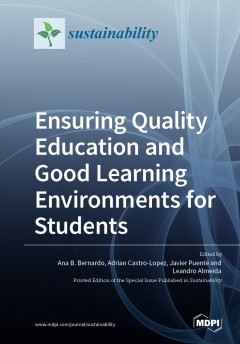
Ensuring quality education and good learning environments for students
Today, new technologies bring with them an everchanging panorama, forcing us to constantly update our knowledge. For this reason, quality education is necessary in all areas of knowledge and at all educational levels. The quality of our educational systems and the questions raised by reviewing whether our educational institutions offer quality education or not are some of the main reasons why q…
- Edition
- -
- ISBN/ISSN
- 9783036524450
- Collation
- x, 254 p. : ill.
- Series Title
- -
- Call Number
- 370 BER e
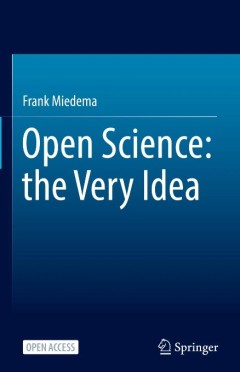
Open science : the very idea
This open access book provides a broad context for the understanding of current problems of science and of the different movements aiming to improve the societal impact of science and research. The author offers insights with regard to ideas, old and new, about science, and their historical origins in philosophy and sociology of science, which is of interest to a broad readership. The book …
- Edition
- -
- ISBN/ISSN
- 9789402421156
- Collation
- xxiii, 247p. : ill.
- Series Title
- -
- Call Number
- 501 MIE o
 Computer Science, Information & General Works
Computer Science, Information & General Works  Philosophy & Psychology
Philosophy & Psychology  Religion
Religion  Social Sciences
Social Sciences  Language
Language  Pure Science
Pure Science  Applied Sciences
Applied Sciences  Art & Recreation
Art & Recreation  Literature
Literature  History & Geography
History & Geography